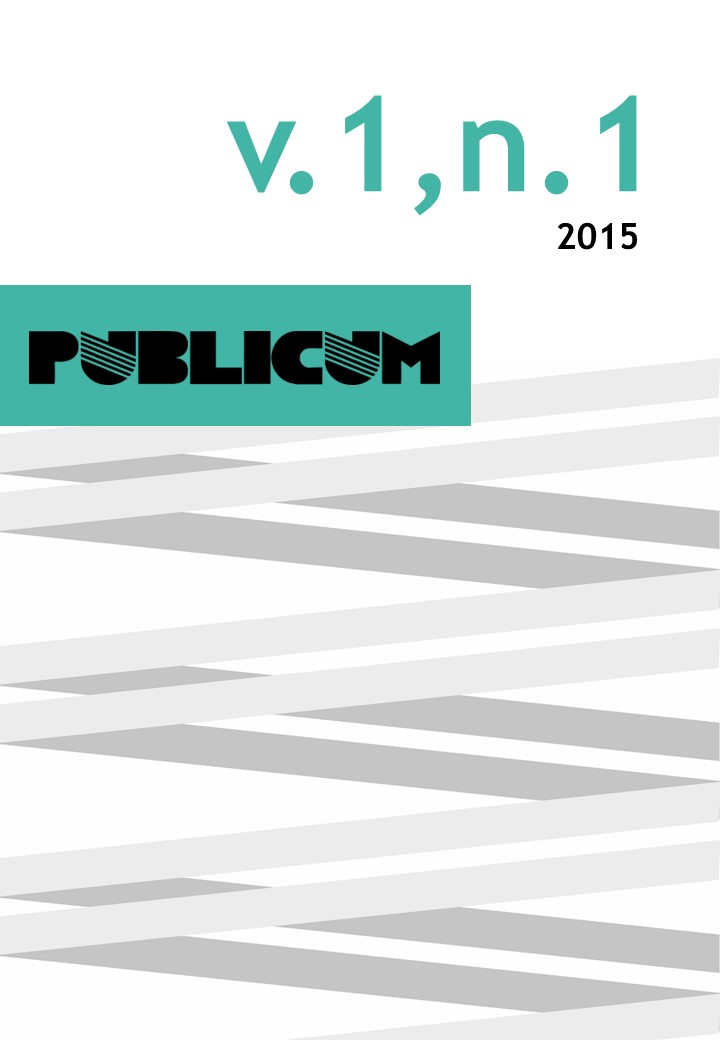Raízes teológico-políticas da modernidade constitucional
DOI:
https://doi.org/10.12957/publicum.2015.20220Palavras-chave:
Teologia Política, Constituição, Constitucionalismo, Modernidade Constitucional, Secularização e SacralizaçãoResumo
No Brasil, religião e política se discutem? Este artigo pretende apresentar uma novaabordagem interpretativa na literatura política dos conceitos usuais de“constitucionalismo” e “constituição” na “modernidade constitucional”. Trata-se de umesforço para explicitar as raízes histórico-semânticas dessas expressões, a partir da ideia deque concepções teológicas de uma época se conectam intrinsecamente com o sentido dasinstituições políticas. A principal literatura sobre Teologia Política enquanto objetocientífico foi produzida na Alemanha do século XX e é ainda pouco debatida no Brasil.Embora a premissa teológico-política seja contestável, a reflexão sobre sua validade – eseu uso como ferramenta hermenêutica de conceitos históricos – continua atual. Odiagnóstico definitivo da modernidade constitucional aponta para o declínio da forçasemântica dos conceitos constitucionais e para o esfacelamento das instituiçõesrepresentativas. O objetivo aqui é revisar a literatura primária da Teologia Política,apontando sua evolução e as principais conclusões dos autores centrais, com destaquepara a relevância desses estudos como fonte de estímulo, a fim de que se abandonemtanto a defesa eufórica da ideologia constitucionalista quanto a necessidade deaniquilação de todos os ganhos civilizatórios proporcionados por ela. Certamente, muitoainda precisa ser feito para bem compreender o ocaso das instituições centrais dademocracia brasileira na modernidade constitucional. Este novo olhar é só uma modestacontribuição nesse sentido.Downloads
Publicado
Como Citar
Edição
Seção
Licença
O autor do trabalho declara conhecer e concordar com as regras a seguir:
1) Realizou o trabalho apresentado à revista, sendo inteiramente responsável pelas ideias e conceitos nele emitidos, que não correspondem, necessariamente, ao ponto de vista dos Editores de Publicum.
2) Obedeceu, na realização do trabalho, os princípios éticos aludidos na política de avaliação da revista[RDN1] .
3) Assume a autoria e a responsabilidade pela obra, declarando que ela não infringe quaisquer direitos de propriedade intelectual de terceiros.
4) Responsabiliza-se, integralmente, por danos de natureza moral ou patrimonial que a veiculação da obra venha a gerar a terceiros.
5) Cede à revista os direitos de reprodução, edição e primeira publicação do trabalho em qualquer meio midiático, em particular sob forma digital, em arquivo eletrônico online na internet.
6) Confere aos Editores o direito de modificar o texto apresentado, sem prejuízo de seu conteúdo, quando necessário para uniformizar a apresentação dos trabalhos e para atender as normas de edição próprias da revista.
7) Concorda com a forma final do trabalho aprovada pela revista.
8) Autoriza a divulgação do trabalho nos canais de comunicação da Faculdade de Direito da UERJ.
9) Concorda com a reprodução de pequenos trechos do trabalho em outras publicações da UERJ.
10) Reconhece que, pela cessão e autorizações acima referidas, não receberá remuneração sob qualquer modalidade, tendo estas o caráter de colaboração científica.
11) Tem ciência de que a publicação do trabalho poderá ser recusada caso não considerada conveniente, por qualquer motivo que seja, sendo que tal recusa não gera responsabilidade e/ou ônus de espécie alguma à revista ou UERJ.
[RDN1]Ver COPE.

Publicum está licenciado com uma Licença Creative Commons Atribuição-NãoComercial 4.0 Internacional.

